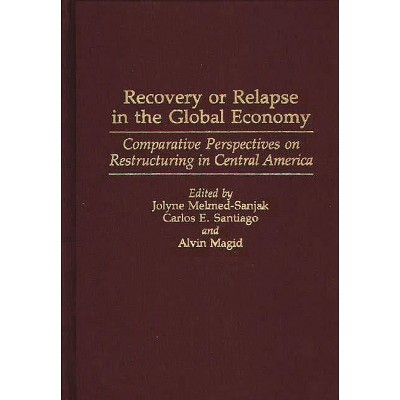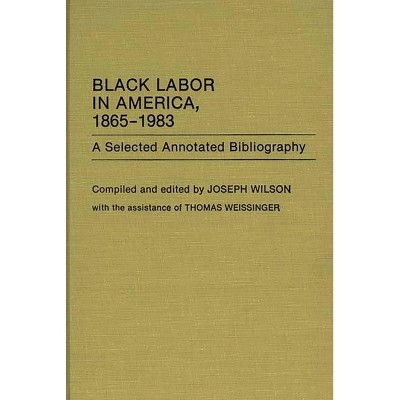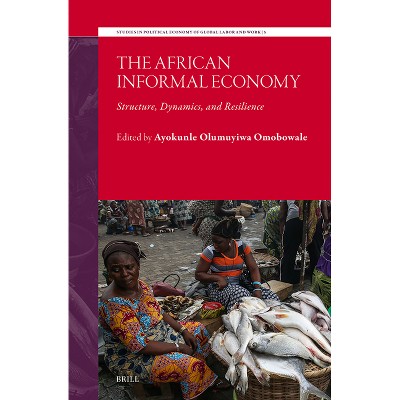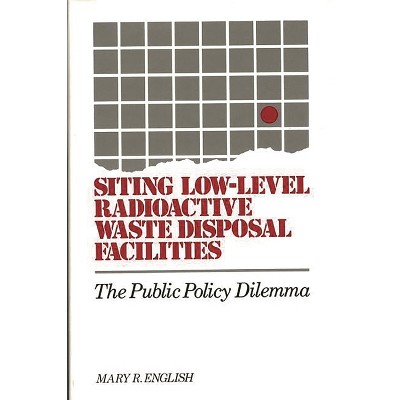Sponsored

Labor in the Puerto Rican Economy - (Bibliographies and Indexes in World) by Carlos Enrique Santiago (Hardcover)
In Stock
Sponsored
About this item
Highlights
- This volume is a theoretical and empirical examination of human resource growth and change in postwar Puerto Rico.
- About the Author: CARLOS E. SANTIAGO is Associate Professor of Economics and Chairman of the Department of Latin American and Caribbean Studies at the State University of New York at Albany.
- 192 Pages
- Business + Money Management, Labor
- Series Name: Bibliographies and Indexes in World
Description
About the Book
This volume is a theoretical and empirical examination of human resource growth and change in postwar Puerto Rico. The study is empirically based, but emphasis is given to econometric results as opposed to econometric methods. The main concern is with issues of economic efficiency. In particular, the book focuses on efficiency in the use of human resources during rapid industrialization. Nonetheless, Santiago subscribes to the notion that economic growth is a necessary but not sufficient condition for economic development. Understanding the larger historical and social processes that encompass economic development requires drawing together, in a multidisciplinary way, information from diverse fields and methodologies. This work helps us to better understand the process of economic development, thus providing directions for practical solutions to the pressing economic problems faced by the majority of the population of the planet.
Much of the critique of the Puerto Rican development strategy is based on its negative impact on income distribution and the fact that it promotes dependency on the United States. This book concludes that, despite its focus on economic growth and rapid industrialization, Puerto Rico's use of resources has been less than optimal, and that on efficiency grounds, the Puerto Rican development model offers some successes but significant errors for developing nations. This work examines those successes and errors and will instruct both economists and policy makers in development economics, labor economics, and Latin American studies.
Book Synopsis
This volume is a theoretical and empirical examination of human resource growth and change in postwar Puerto Rico. The study is empirically based, but emphasis is given to econometric results as opposed to econometric methods. The main concern is with issues of economic efficiency. In particular, the book focuses on efficiency in the use of human resources during rapid industrialization. Nonetheless, Santiago subscribes to the notion that economic growth is a necessary but not sufficient condition for economic development. Understanding the larger historical and social processes that encompass economic development requires drawing together, in a multidisciplinary way, information from diverse fields and methodologies. This work helps us to better understand the process of economic development, thus providing directions for practical solutions to the pressing economic problems faced by the majority of the population of the planet.
Much of the critique of the Puerto Rican development strategy is based on its negative impact on income distribution and the fact that it promotes dependency on the United States. This book concludes that, despite its focus on economic growth and rapid industrialization, Puerto Rico's use of resources has been less than optimal, and that on efficiency grounds, the Puerto Rican development model offers some successes but significant errors for developing nations. This work examines those successes and errors and will instruct both economists and policy makers in development economics, labor economics, and Latin American studies.Review Quotes
?Santiago is one of the foremost experts on labor in the Puerto Rican economy. This volume brings together the fruits of more than a decade of research, much of it in specialized economics journals, on the particularities and peculiarities of the evolution of the Puerto Rican work force since industrialization began in the 1940s. Santiago analyzes the unusual decline in male labor-force participation and the expanding role of women in the labor force (and the issue of the substitution of female for male employment); the discouraged worker/additional worker hypothesis; and the role of multinational corporations in shaping the evolution of the labor force. Throughout, he weaves in the indisputable importance of unrestricted migration, as well as the broader "special" legal relation that exists, between Puerto Rico and the US. Santiago's research is based on extensive and sophisticated econometric analysis, not all of which will be decipherable for the noneconometrician. Still, with a bit of effort, the major results of the research are quite accessible and well worth the effort. Graduate; faculty.?-Choice
"Santiago is one of the foremost experts on labor in the Puerto Rican economy. This volume brings together the fruits of more than a decade of research, much of it in specialized economics journals, on the particularities and peculiarities of the evolution of the Puerto Rican work force since industrialization began in the 1940s. Santiago analyzes the unusual decline in male labor-force participation and the expanding role of women in the labor force (and the issue of the substitution of female for male employment); the discouraged worker/additional worker hypothesis; and the role of multinational corporations in shaping the evolution of the labor force. Throughout, he weaves in the indisputable importance of unrestricted migration, as well as the broader "special" legal relation that exists, between Puerto Rico and the US. Santiago's research is based on extensive and sophisticated econometric analysis, not all of which will be decipherable for the noneconometrician. Still, with a bit of effort, the major results of the research are quite accessible and well worth the effort. Graduate; faculty."-Choice
About the Author
CARLOS E. SANTIAGO is Associate Professor of Economics and Chairman of the Department of Latin American and Caribbean Studies at the State University of New York at Albany. He has published extensively in such journals as Economic Development and Cultural Change, the Journal of Labor Economics, the Journal of Development Economics, and World Development.










